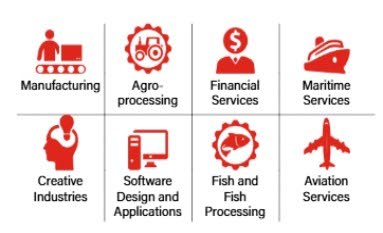Marc Sandy Grant funding opportunities for micro, small, and medium-sized enterprises (MSMEs) are significant, particularly through the Ministry of...
Vous n'êtes pas connecté
- English
- Français
- عربي
- Español
- Deutsch
- Português
- русский язык
- Català
- Italiano
- Nederlands, Vlaams
- Norsk
- فارسی
- বাংলা
- اردو
- Azərbaycan dili
- Bahasa Indonesia
- Հայերեն
- Ελληνικά
- Bosanski jezik
- українська мова
- Íslenska
- Türkmen, Түркмен
- Türkçe
- Shqip
- Eesti keel
- magyar
- Қазақ тілі
- Kalaallisut ; kalaallit oqaasii
- Lietuvių kalba
- Latviešu valoda
- македонски јазик
- Монгол
- Bahasa Melayu ; بهاس ملايو
- ဗမာစာ
- Slovenščina
- тоҷикӣ ; toğikī ; تاجیکی
- ไทย
- O'zbek ; Ўзбек ; أۇزبېك
- Tiếng Việt
- ភាសាខ្មែរ
- རྫོང་ཁ
- Soomaaliga ; af Soomaali
Rubriques :
 Maroc - NEWSDAY.CO.TT - A la Une - Hier 05:44
Maroc - NEWSDAY.CO.TT - A la Une - Hier 05:44
Making AI work for finance operations
Gavin Hinks CFOs have been urged to take care with how they attempt to apply artificial intelligence (AI) in their finance operations as research reveals that most of last year’s projects to introduce the technology did not make it over the line. According to market intelligence firm IDC, while CFOs believe that AI can address key concerns such as the speed of decision-making, managing compliance and risk, and coping with meetings overload, only 13 per cent of implementation projects were successful in 2024. Experts point out that identifying the specific situations where AI could be deployed, known as "use cases," requires finesse. Michael Lengenfelder, global solutions architect at Unit4, a software company that sponsored IDC’s research, says that there is a "real danger" that many applications of AI are aimed at accelerating workflows already well managed by other technologies, such as using the technology for forecasting on factors that undergo minimal fluctuation. "Identifying use cases is not straightforward," he says. "We always advocate a pragmatic approach starting with understanding the problem you want to solve, but at its heart this is a calculation around balancing the expected benefits against the costs of implementing AI to understand what the most cost-effective use case will be." AI’s limitations CFOs also need to be aware of tasks not suited to AI, such as analysing information that requires the kind of knowledge and experience held by different teams. "Could an AI tool realistically dig into multiple layers of data to uncover this information as quickly as an experienced finance professional?" Lengenfelder asks. Lengenfelder singles out financial planning and analysis as a specialism not suited to GenAI as the technology relies on the use of large language models (LLMs), which looks for patterns but struggles to accommodate random events. "It is difficult for AI tools to take account of unexpected events such as extreme weather or seasonal fluctuations," he says. "As a result, there is a danger that such an AI tool might forecast resources being allocated to projects consistently without reflecting the realities of external factors affecting a business." DeepSeek impact Discussion of AI has come to dominate the business landscape as corporate leaders investigate whether it will either disrupt industries or provide efficiencies that will allow companies to get ahead of competitors. Governments plan to invest heavily in AI, too. [caption id="attachment_1139856" align="alignnone" width="1024"] -[/caption] However, the AI world was also upended in January by the release of Chinese AI DeepSeek, using lower grade chips and said to have cost a fraction of the investment pumped into pioneers like OpenAI’s ChatGPT. DeepSeek’s release saw millions wiped from tech stocks around the world as investors struggled to clarify its implications for the industry. Companies remain in learning mode, too, about the most effective ways to use AI, and that means placing possible use cases under a microscope, says Lengenfelder. "The finance team should be encouraged to explore testing the technology, as this learning process will build confidence and solidify understanding about where AI can make difference." Tom Seal, senior research director at IDC, says that CFOs will, however, come across super-use cases. "These are the ones that will drive efficiencies, provide accurate insight and generally empower the finance function to be more accurate and more impactful on the business," he says in the report. Seal believes that such cases should also include better risk management, in shifting market conditions and greater adaptability. However, the report says that successful use of AI will be human-centric: training employees and engaging them in AI strategy development. AI without human intervention could, Seal says, lead to a "lack of nuance." Lengenfelder says that external advice may be helpful but CFOs should note that it will be ‘more effective to organically integrate individuals with AI skills into the team, rather than rely on external consultants. Europe lags on investment The report reveals that 53 per cent of German businesses plan to invest in GenAI in 2024-25, lower than the US and the UK (59 per cent), and more than Sweden (43 per cent). In the Benelux countries (Belgium, Netherlands and Luxembourg), 55 per cent of employees believe that AI will affect their current roles, far fewer than their US counterparts (93 per cent). Meanwhile, over a third of German enterprises (36 per cent) believe that AI’s biggest impact will be through time savings that allow employees to focus on higher value tasks. However, 82 per cent of surveyed Benelux workers are concerned that their employers fail to recognise the potential harm of applications to employees and customers; in Sweden, the rate is 71 per cent. Many experts believe that AI could enable finance departments to restructure, which will require closer working between CFOs and other executives to use real-time insights and analysis for decision-making. The key takeaway from the research is that, for most businesses, the AI journey is still in the foothills. "The fact that so few AI projects make it into production underlines the point that, particularly in finance, we’re in the early days of exploring the technology," Lengenfelder says. The post Making AI work for finance operations appeared first on Trinidad and Tobago Newsday.
Articles similaires
The Hidden Cost Of Mongolia’s Mining Boom – Analysis
By Narantuya Chuluunbat Mongolia’s burgeoning mining sector is a cornerstone of its economy. But it comes with inherent challenges, including...
Sonos Lays Off 200 Employees in Restructuring
Shortly after former Sonos CEO Patrick Spence resigned last month, it was reported that Sonos would begin the process of laying off around 200...
CFOs plan to boost tech budgets
Despite ongoing economic and geopolitical disruption, chief financial officers (CFOs) are planning significant technology budget increases, viewing...
South Africa plans R940 billion infrastructure spend over the next three years
Infrastructure spending is essential for South Africa's economic growth and development. President Cyril Ramaphosa announced that the government plans...
A local AI to meet the cyberbullying challenge
[audio m4a="https://newsday.co.tt/wp-content/uploads/2025/02/BitDepth1497_Narration_10-02-2025.m4a"][/audio] BitDepth#1497 Mark Lyndersay THE MORNING...
Heritage CEO highlights energy-sector challenges, opportunities
The CEO of Heritage Petroleum, Erik Keskula, has highlighted some challenges and opportunities facing the energy industry, emphasising investment in...
Closing Climate Security Gaps Requires More Reliable Data On Climate Finance – Analysis
By Abeer S. Ahmad Among the limited progress made at the United Nations Climate Change Conference (COP29) in November last year was an agreement...
DDR3 and DDR4 Memory Production May Be Halted This Year
The technology world, especially for computers and smart devices, has completely switched to using the latest DDR5 memory. And because of this, there...
Imported timber should carry label of origin
All imported timber sold in Australia would carry a label indicating where it was grown, under a proposal by the national forest industry aimed at...
Les derniers communiqués
-
Aucun élément


.jpg)



